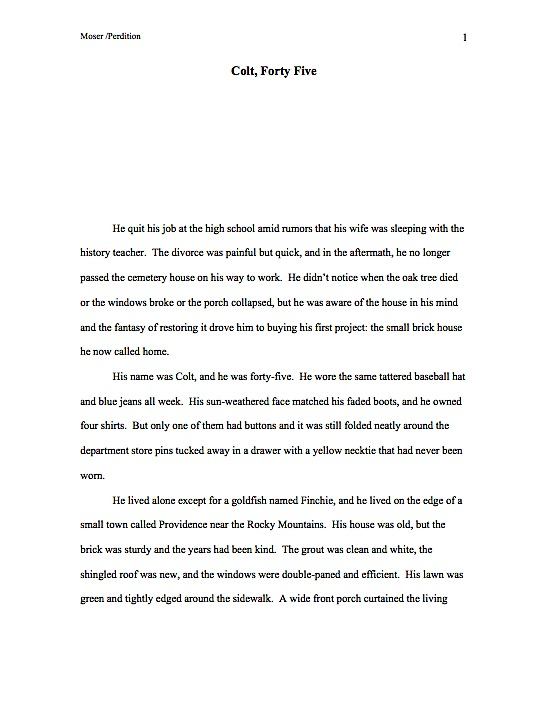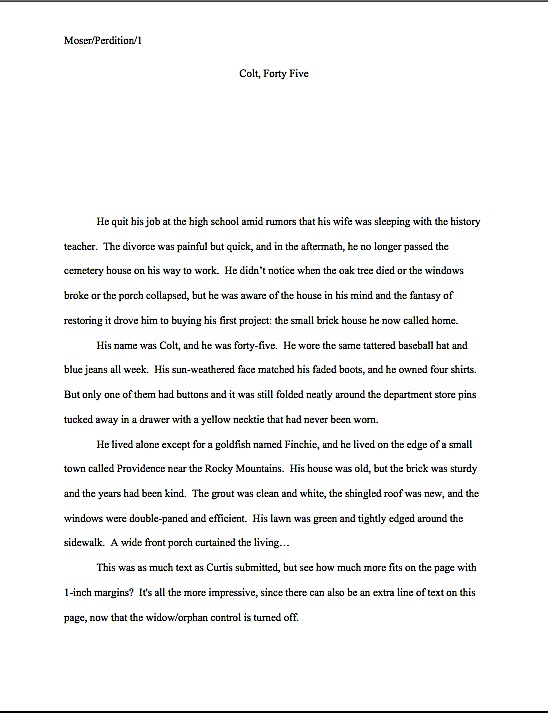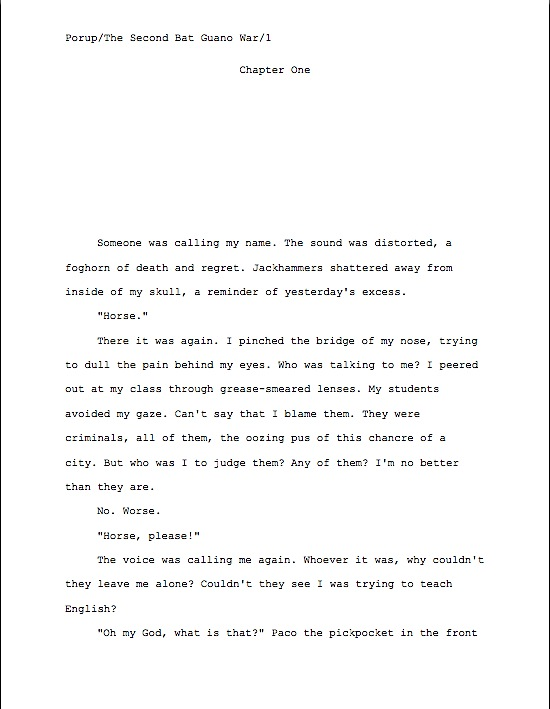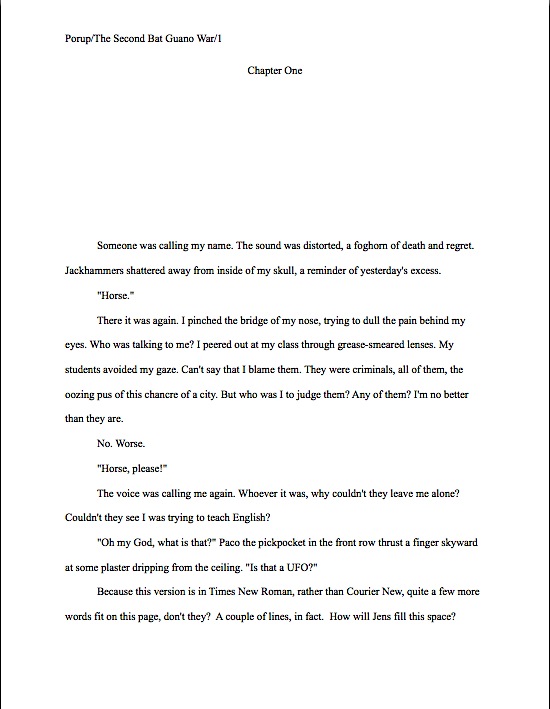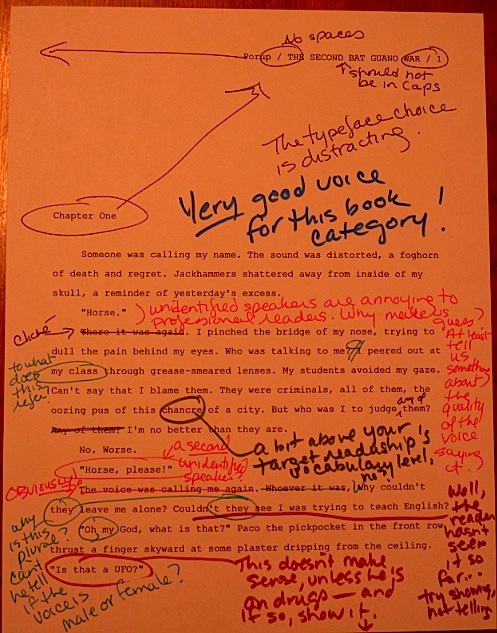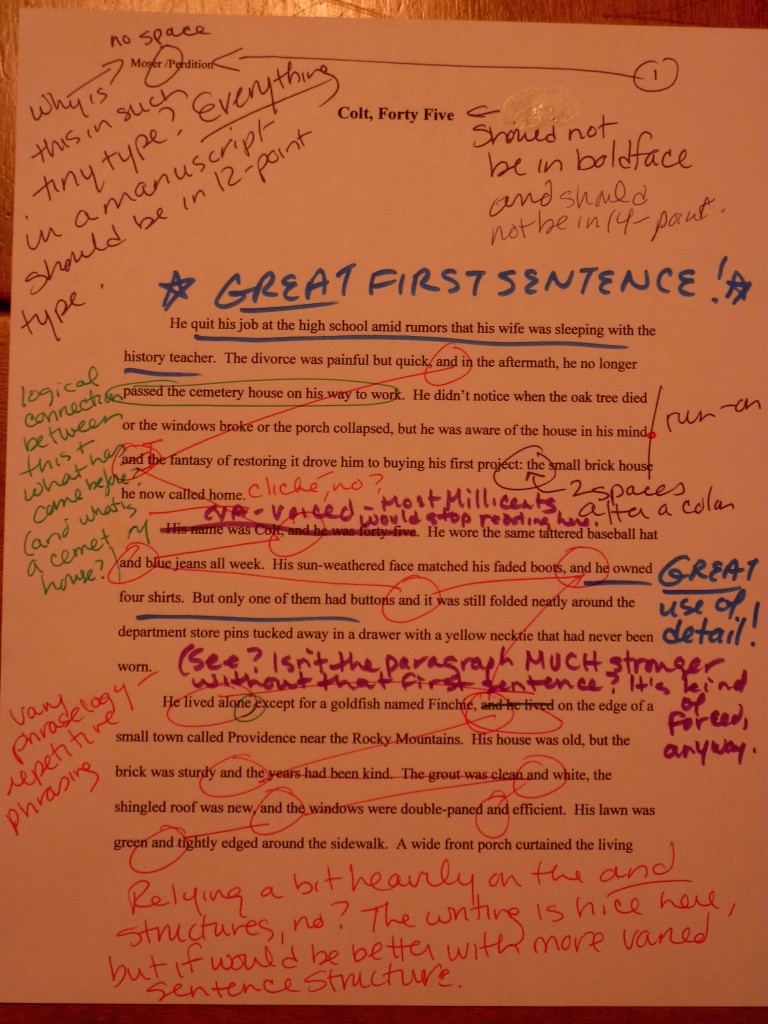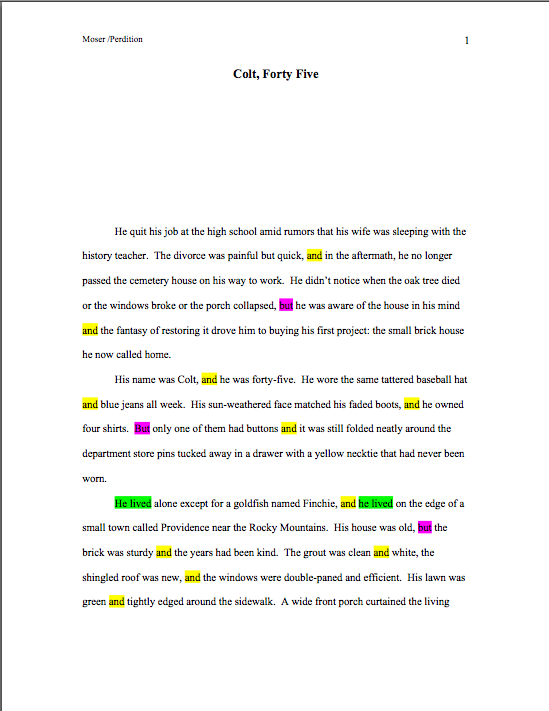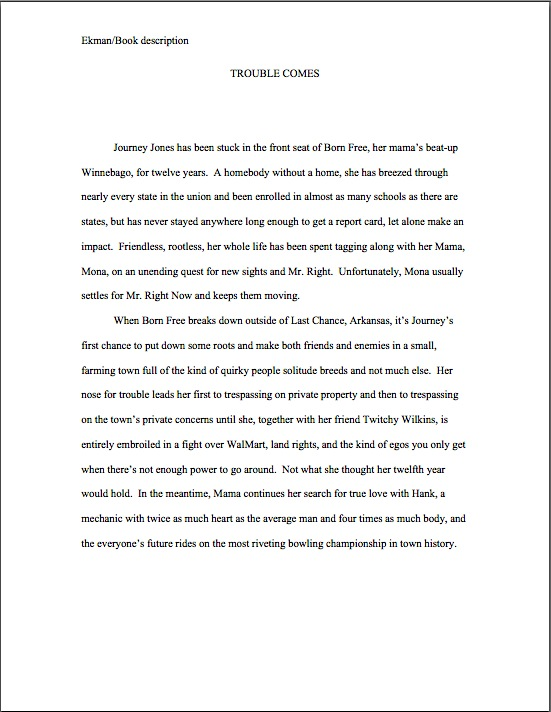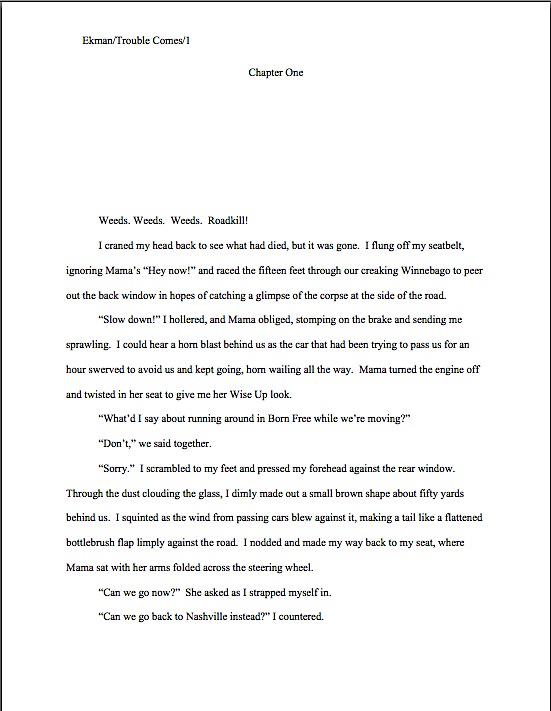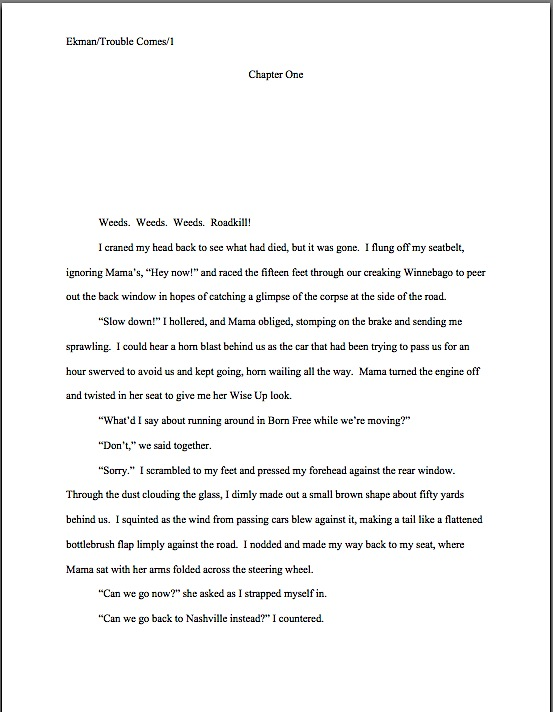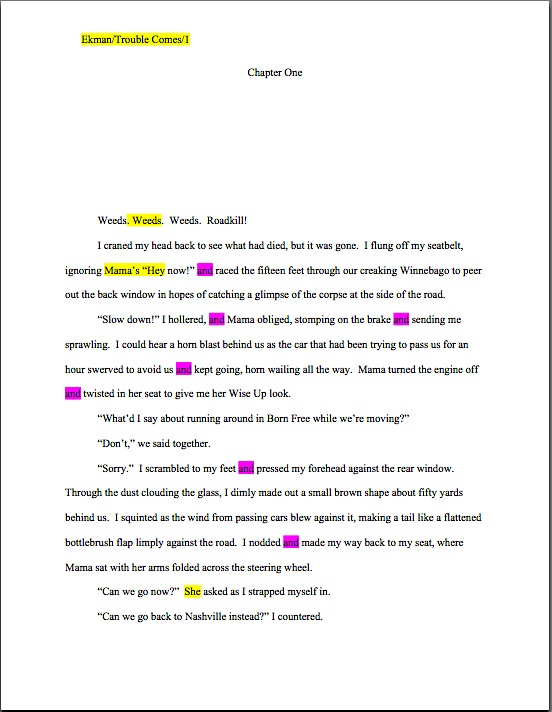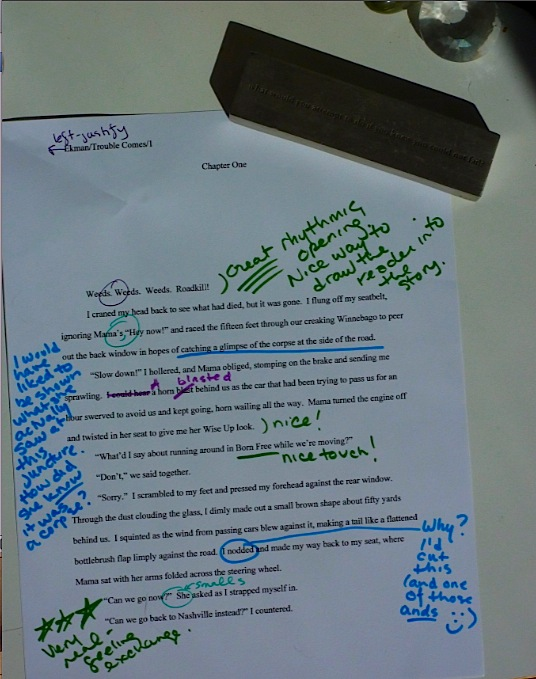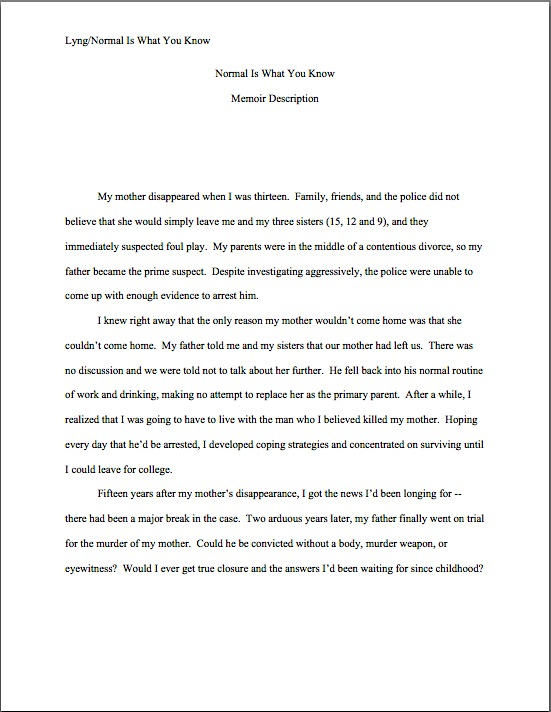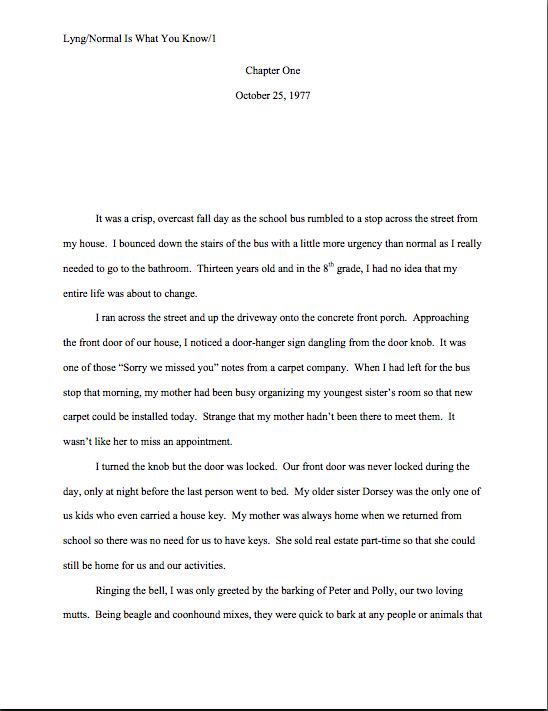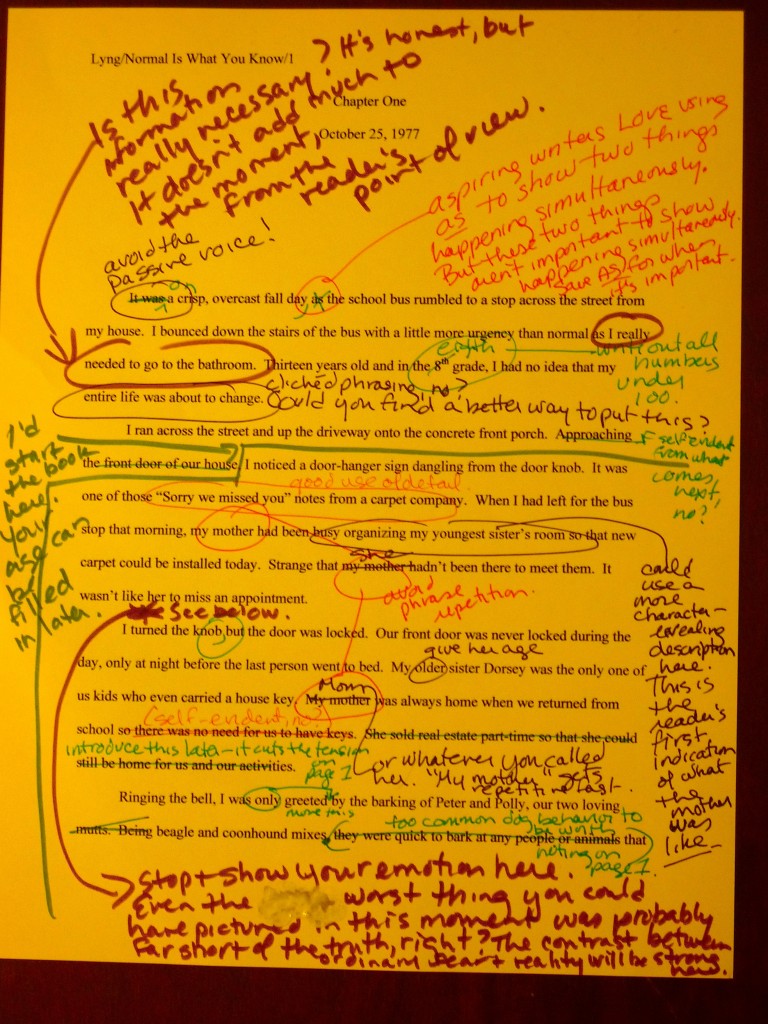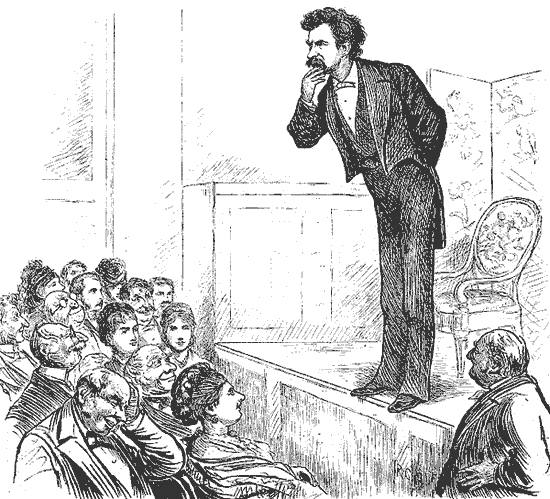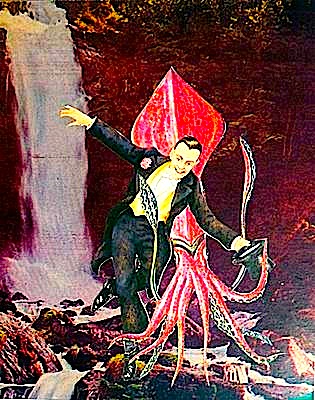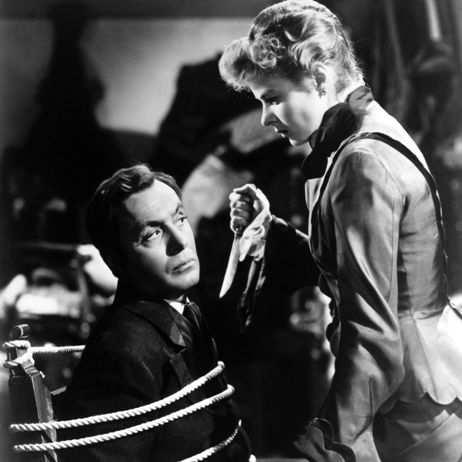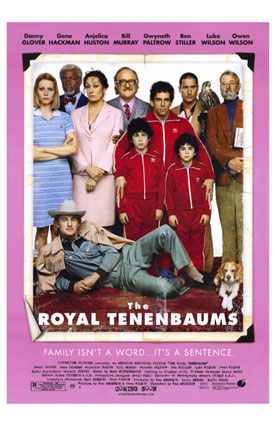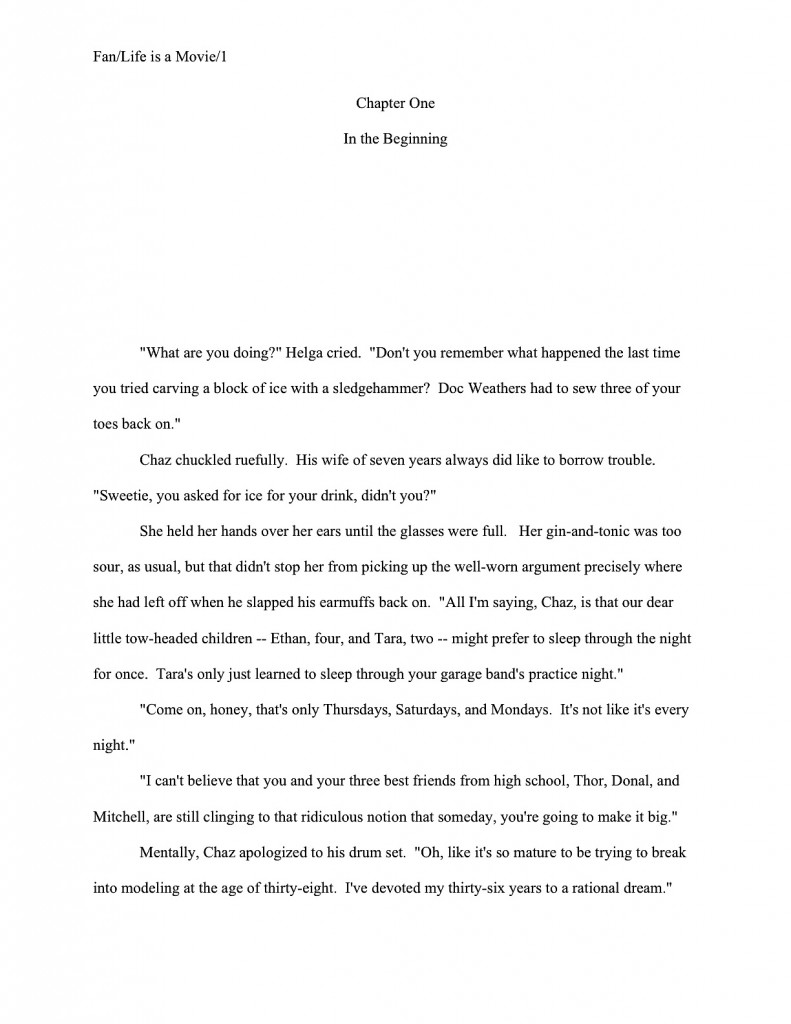After yesterday’s unusually lengthy post, even by my standards (which is saying something), I thought I’d limit myself this evening to a light, sparkling addendum to last time’s intensive session of nit-picking. It will be a struggle, I fear; well-constructed dialogue is a subject upon which I, like Millicent the agency screener, hold quite passionate views.
Why work ourselves into a lather over dialogue, you ask, instead of, say, punctuation placement? Well, while I, for one, have been known to wax eloquent about our friend, the humble comma, its placement is largely a technical issue: it’s rare that a great new writer will stake her claim to fame upon her bold and innovative use of commas.
Seriously, would you want your name to be passed down to posterity as King of the Commas? Wowing the literary world with an unusually good ear for dialogue, on the other hand, is a goal to which many a fledgling writer of fiction and/or memoir aspires. It’s certainly a worthwhile one: writing dialogue well requires not merely a strong sense of what people actually say and the rhythms in which they say it, but also the creativity to pepper the dialogue with enough originality that it won’t seem ho-hum.
Yet for some reason that perpetually escapes me, even writers who pride themselves on their fresh, original notions and execution frequently choose to bore poor Millicent to extinction with uninteresting dialogue. “But people really talk like that,” they hedge. “It’s not my fault if most people are not scintillating conversationalists.”
Well, that’s not entirely true, realism-huggers. While no one can hold you accountable if the couple at the next table elects to immerse themselves in dull chit-chat (“How about this rain?” “We sure do need it.” “I’ll say.”), it’s not fair to expect readers to suffer through dialogue that has no legitimate claim to attention other than its fidelity to real-life talk.
Or, to put it a bit more bluntly: not everybody in the world is under an obligation to produce entertaining sentences. Writers are.
Messes with your head a little to think of dialogue in those terms, doesn’t it? If so, you’re not alone: most dialogue in submissions is clearly aimed at realism, rather than entertainment. Only a relatively small percentage of submissions demonstrate a commitment to developing character through speech by having characters say interesting and unexpected things in their own distinct voices.
Which is to say: you’d be amazed — at least, I hope you would — by how frequently otherwise creative narratives are bogged down by mundane, unrevealing, or cliché-ridden dialogue.
How common is it? Let me put it this way: if an alien from the planet Targ were to drop from the sky into Millicent’s cubicle tomorrow, determined to learn about how human beings communicate by leafing through a few hundred submissions, it would stroll out of her office sounding just like that couple at the next table. If you ran into it at a cocktail party, you’d be eavesdropping on nearby conversations within a couple of minutes.
What a pity — it might be fascinating to hear about living conditions on Targ these days. But even someone with something interesting to say can seem boring if he doesn’t express himself in interesting terms.
Or if, as we saw last time, if he chooses not to vouchsafe an opinion of his own. All too often, supporting characters — or even more common, passive protagonists whose idea of solving a mystery is to ask one or two questions, then sit back and wait while someone who has defined her very existence by the secret she has kept just blurts out the long-hidden truth — are only nominal participants in dialogue scenes. By not engaging the primary speaker with an alternate point of view, the character becomes simply a monologue-encourager.
Trevor glanced around the musty basement, wondering how anyone could possibly survive for an hour there, much less thirty-eight years. “So you have been in hiding all of this time?”
“You call it hiding.” Veronica’s teeth wobbled visibly with every word. “I call it saving my skin.”
“Really?”
“Oh, yes. When I first sought out the basement, it was merely as temporary shelter from the horrors of the street. I had no idea that I would be spending the better part of my life here.”
“Wow.”
She flipped her lank gray bangs out of her eyes, and just for a second, she resembled the seventeen-year-old she had been when she last stood in natural light. “Well might you say wow. Do you know how long it took me to figure out how to transform the disused washer/dryer unit into a convection oven? Eight long years. Before that, I had to eat the rats that sustain me raw.”
“Eww.”
“Oh, you get used to it. It’s the right seasoning that’s the trick. The same holds true for cockroach goulash, incidentally.”
“Weren’t you going to tell me about the horrible incident that drove you underground?”
She clutched her mouse fur bed jacket around her fiercely. “I swore I would never tell. Never!”
Trevor’s heart sunk within him. He had come so far in the last forty-eight hours; he couldn’t turn back without one last push. “Pretty please? With sugar on top?”
Veronica looked at him, and her last reservation melted. “It was a dark and stormy night in 1973. I was just a girl then, getting ready for the prom. My dress was hanging over my David Cassidy poster, waiting for me to pick out which of my six sets of platform shoes I would wear. Suddenly, I had the eerie feeling I was being watched.”
“Uh-huh,” he prompted breathlessly.
Trevor’s not adding very much to this interaction, is he? By choosing to be a mostly passive listener, rather than a participant in the conversation, he’s done more than abdicate his role as the reader’s guide through this part of the plot; he’s basically pulled up a chair and plopped himself down right next to the reader, drinking in Veronica’s story as though he were just another audience member.
But at least he is responding in a manner that reveals his feelings about what she is saying. All too often, passive protagonists in interview don’t even do that.
Trevor glanced around the musty basement. “So you have been hiding here all this time?”
“You call it hiding.” Veronica’s teeth wobbled visibly with every word. “I call it saving my skin.”
“Saving your skin?
“Oh, yes. When I first sought out the basement, it was merely as temporary shelter from the horrors of the street. I had no idea that I would be spending the better part of my life here.”
“The better part of your life? Why, how long has it been?”
“That depends. What year is it?” She laughed loudly before he could answer. “Just kidding. It’s been thirty-eight years.”
“Thirty-eight years!”
“The trick was keeping myself busy. Do you know how long it took me to figure out how to transform the disused washer/dryer unit into a convection oven? Eight long years. Before that, I had to eat the rats that sustain me raw.”
“Rats? Raw?”
“Oh, you get used to it. It’s the right seasoning that’s the trick.”
Pardon my asking, but couldn’t Trevor’s part in this scene be very adequately played by a parrot? Or a very high, cavernous ceiling that could echo Veronica’s words back to her?
Certainly, he’s providing neither conflict nor any additional information to the scene. Heck, he’s barely contributing any new words.
So what is he doing in the scene at all? Perhaps he is seeking clues to an ongoing mystery he is trying to solve, and is merely going about it poorly. Or maybe he is actually an immensely clever sleuth, trying to lull poor Veronica into a false sense of security by giving incisive questions about what he wants to know a wide berth. Or he could have just suffered a brain injury that deprived him of the ability to understand what someone is saying until he’s heard every part of it twice.
Or maybe he’s just rather stupid. At least, he appears so on the page.
That made some of you real dialogue-echoers sit bolt upright in your desk chairs, didn’t it? “But Anne,” you point out with some vim, “I know that you’ve just been saying that the fact that people actually talk that way shouldn’t be the only justification for a line of text, but people actually do talk this way. Repeating what’s just been said is a standard means of asking for clarification. Why, I can barely watch five minutes of any TV drama without hearing a character repeat a phrase that’s just been said to her.”
I believe it — and that alone might be a good reason not to embrace this conversational tactic in your dialogue. Since the rise of reality television (does anyone but me remember that producers originally embraced the format because the writers’ guild was on strike?), we’ve all become accustomed to highly repetitious speech pouring out of characters’ mouths, often with a blithe disregard for the rules of grammar. Heck, it’s become quite normal for even speakers who should know better to misuse words.
And I’m not talking about tiny gaffes, like saying further when the speaker really meant farther, either. (In response to that silent plea for clarification: the first refers to concepts, the second to distance.) I’m talking about the increasingly common practice of substituting the intended word or phrase with one that sounds similar to it — a doggy-dog world instead of a dog-eat-dog world, for instance, or mano y mano instead of mano a mano — as if getting it right simply didn’t matter. Or simply using a term so loosely that its original meaning dissipates, as when someone dubs an outcome ironic when it’s merely symbolically apt (in itself ironic, since irony is when the intended and literal meaning are at odds). Or says unironically, “We will be landing momentarily,” when he means “We will be landing in a few minutes,” not “We will be landing for a few moments, then taking off again.”
Yes, yes, I know: if I were correcting these commonly-misused phrases in the middle of an actual conversation, I would come across as a joy-killing curmudgeon. (Blame my upbringing: children in the Mini household were expected to be both seen and heard, but never to end a spoken sentence with a preposition.) And to tell you the truth, I wouldn’t have a problem with a writer’s reproducing these gaffes on the manuscript page — provided that their use was limited to dialogue and not every character made similar mistakes.
Which character would I select to talk this way? The one the reader is supposed to regard as a little slow on the uptake, of course.
Oh, you laugh, but back when writers composed and refined every word that fell out of characters’ mouths on TV and in movies, placing improper grammar and malapropisms into dim-witted characters’ mouths was a standard comic device. It was also a time-honored means of establishing a character’s level of education, social class, or susceptibility to prejudice: much of the recent furor over whether it was legitimate to clean up the language in HUCKLEBERRY FINN so that it could be assigned in more high school classrooms turned on Mark Twain’s devastatingly frequent use of a certain pejorative term to illustrate his protagonist’s change of perspective on issues of race throughout the book.
Even now, one of the quickest means of making a character come across as less intelligent on the page is to have him misuse words or repeat what’s just been said to him. The latter can be particularly effective, enabling the dialogue to convey that he doesn’t understand what’s going on without having to resort to the blunt expedient of having another character call him stupid.
Don’t believe that a few misused or repeated words can have that great an impact on character development? Well, they might not to a reader who habitually makes similar mistakes, but to a literate reader — and Millicent, her boss the agent, and the editor to whom the agent pitches pride themselves on their literacy — conversational faux pas will leap off the page. They’re a way to show, not tell, that a character has trouble expressing himself.
I sense that some of you are still not convinced. Okay, here’s an anecdote about how the repetition of a single misused word made a university professor seem substantially less intelligent.
When I was in graduate school, I took several small seminars with Professor Baker, an elegant, well-spoken woman who delighted in quoting Ancient Greek playwrights in even the most informal conversations. No mere cold intellectual, she was deeply interested in her students’ personal development. “Don’t cut off your options,” she would tell us frequently. “Go out and explore. I want to see you living a fulsome life!”
The first time she said this, I was convinced that I must have misheard. Fulsome, after all, means grossly overabundant or insincere; a fulsome complimenter would heap on praise after exaggerated praise until it was impossible to believe anything he said at all. It can also mean disgusting or offensive to the sensibilities. Somehow, I doubted that my professor was wishing me a life that resembled rotting meat.
Yet at the end of practically every seminar session, she would repeat her admonition: she seemed pretty darned insistent that my fellow students and I should be actively pursuing fulsome lives.
What she meant, of course, was that we should lead full lives; she must have just thought the -some bit added emphasis. But when I suggested that she truncate the word, she snapped at me like an irate turtle.
“Are you questioning my erudition?” she demanded. “I would hardly use a word if I were unaware of its definition.”
In that moment, to paraphrase Emily Dickinson, she dropped so low in my regard/I heard her hit the ground. Not because she had consistently been using her favorite word incorrectly, but because she was too inflexible even to consider the possibility that she might have been wrong. And because had she been right, all she would have had to do was stretch that elegant, beringed hand across her well-appointed desk, open a dictionary, and show me the definition.
If she had wielded her pet piece of advice with more discretion, she would probably have gotten away with it, right? I might have chuckled over my notebook, but her momentary gaffe would soon have been obliterated in my memory by other, more lucid statements. But by repeating it so often, essentially turning it into her catchphrase, she made sure that single mistake would become entrenched in my mind as the key to her entire character.
Would this tactic work on the page? You bet, although I would advise giving a fictional character a wider array of conversational missteps. Repeating the same one over and over might well backfire: since professional readers are trained to spot textual repetition — how else would they be able to point out to you that you used the same metaphor twice in 157 pages? — the second iteration might strike Millicent as unintentional. (In answer to what half of you just shouted mentally: oh, you’d be surprised how often aspiring writers will plagiarize themselves within a manuscript. They don’t mean to be repetitious; they simply forget that they have used an image or even a sentence earlier in the book.)
Speaking of low-level carelessness, there’s another reason it might behoove Trevor’s creator to ramp up his contribution to the scene. You really don’t want Millicent to start wondering if the only reason he’s in the scene is to provide the narrative an excuse to show the reader what it’s like down there.
You’re chuckling again, aren’t you? Think about it: in a close third-person (or first-person) narrative, Trevor would have to be there to justify the reader’s venturing into that basement. Including a scene in which he did not appear would necessarily entail jumping into someone else’s perspective — or slipping out of the dominant voice of the book into an omniscient point of view.
“Whoa!” Millicent cries. “This manuscript is breaking its own rules!”
You can hardly blame her for being hyper-sensitive on this point: since tight third person and first person are the two most popular point of view choices, she sees an awful lot of protagonists wander into an awful lot of situations where they have no business being, simply because writers want to include specific scenes in their books. She’s also privy to a great many instances of a narrative’s abandoning the strictures the writer had been following for the rest of the story — sticking to a single perspective, allowing the narrative to be colored by the chosen character’s prejudices, and so forth — because the writer apparently could not figure out a way to show a desired activity from the dominant perspective.
In answer to that collective gasp: yes, she will notice, whether the point of view slips for an entire scene or a single paragraph. She’s going to be on the lookout for such voice inconsistency problems, in fact. It’s all a part of her fulsome rich and meaningful life.
Make sure your protagonists pursue existences almost as full as hers: don’t allow them to become bystanders in their own lives, even for a page. Show them engaging in the world around them; let their presences add substantially to any scene they grace. Those contributions do not need to be limited to the dialogue, either: in a close third-person or first-person narrative, even a protagonist forced to remain stock-still and silent can interrogate her boss in her thoughts, signal another prisoner with a poke of her toe, struggle to breathe calmly while that cursed monologue-happy teacher bellows in front of the chalkboard…
The possibilities are, as they say, limitless. In a universe both frequently fulsome and perpetually full, why restrict the scope of your creativity by not taking complete advantage of your protagonist’s ability to react?
Worth pondering, anyway. Keep up the good work!
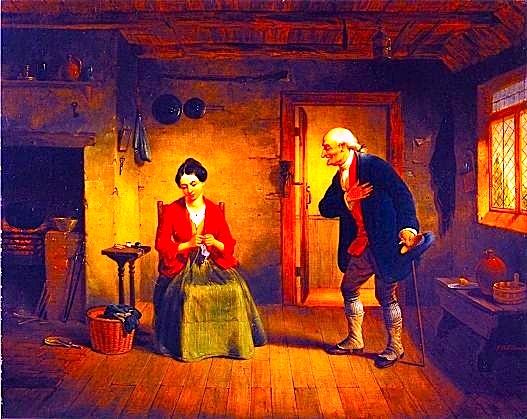
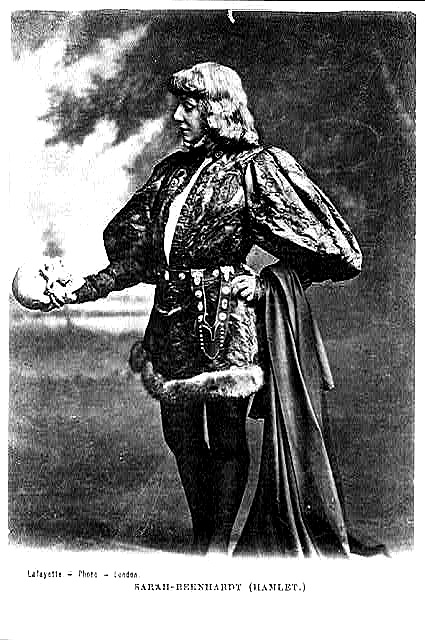





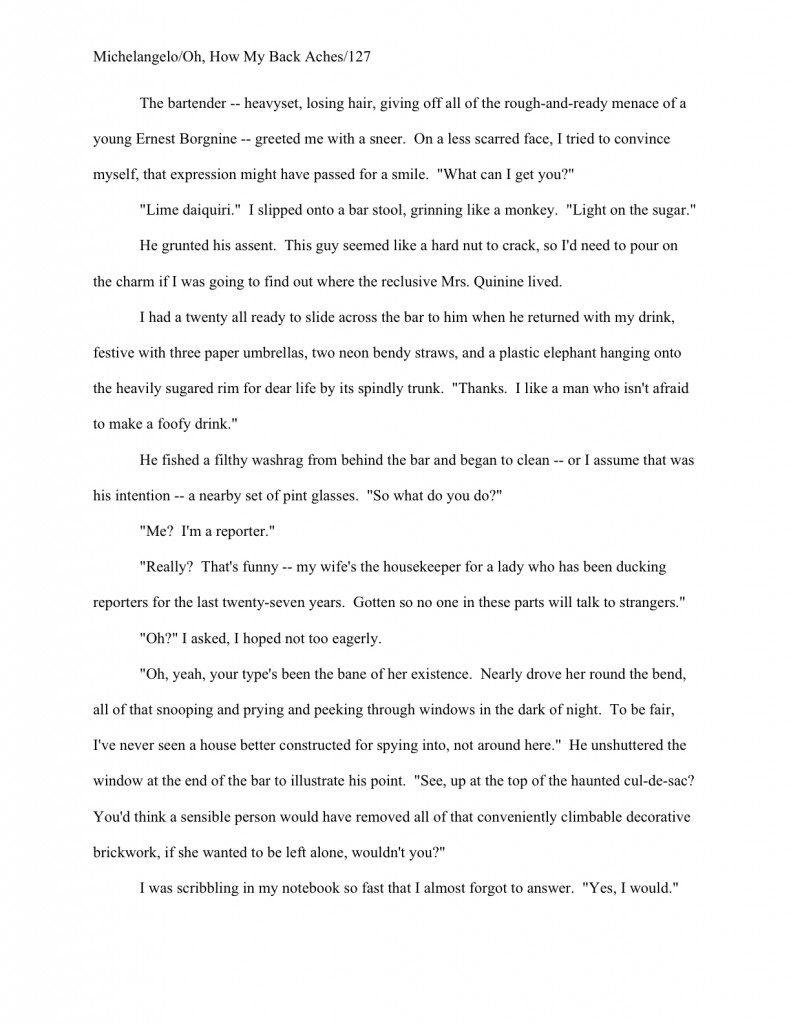
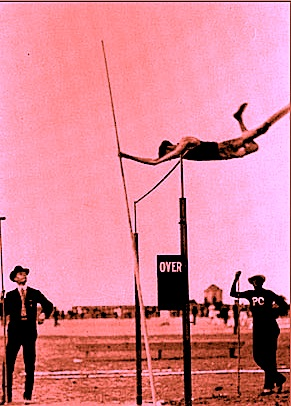
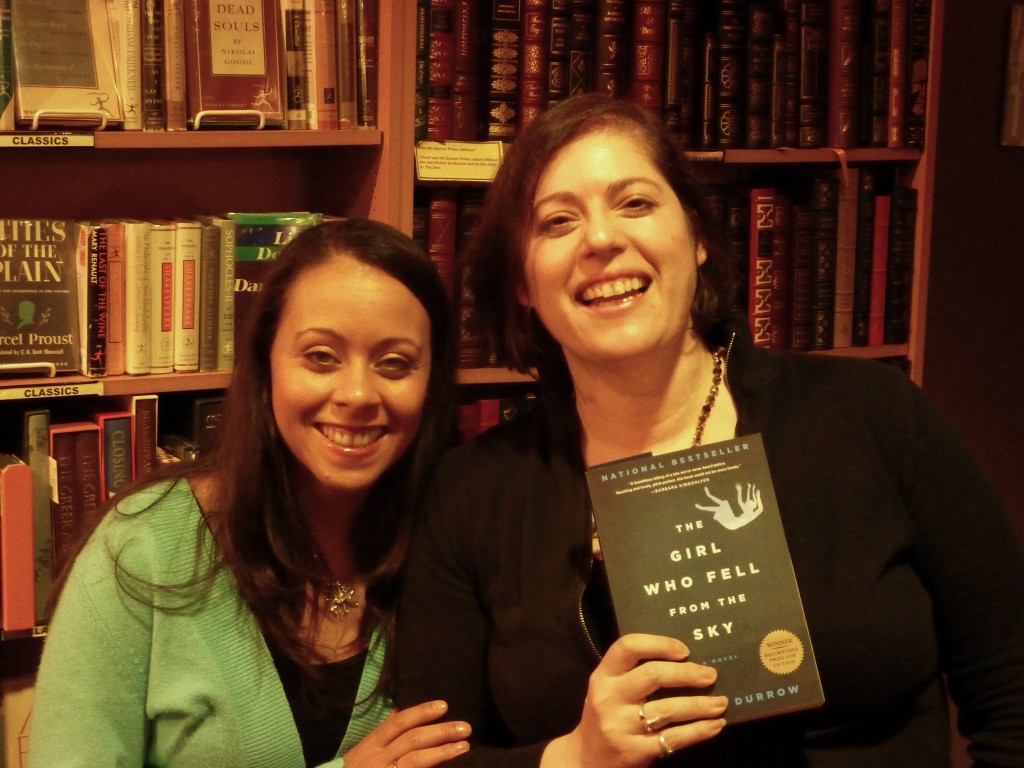
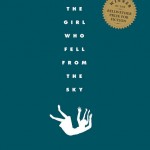 Rachel, the daughter of a Danish mother and a black G.I., becomes the sole survivor of a family tragedy after a fateful morning on their Chicago rooftop.
Rachel, the daughter of a Danish mother and a black G.I., becomes the sole survivor of a family tragedy after a fateful morning on their Chicago rooftop. 
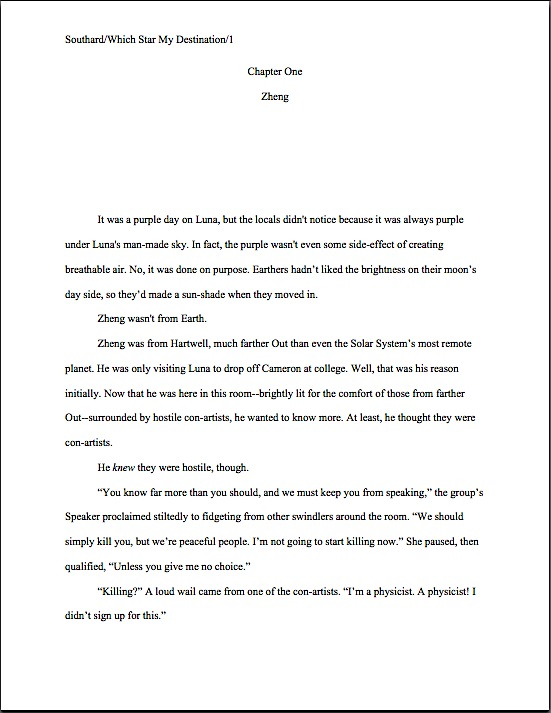
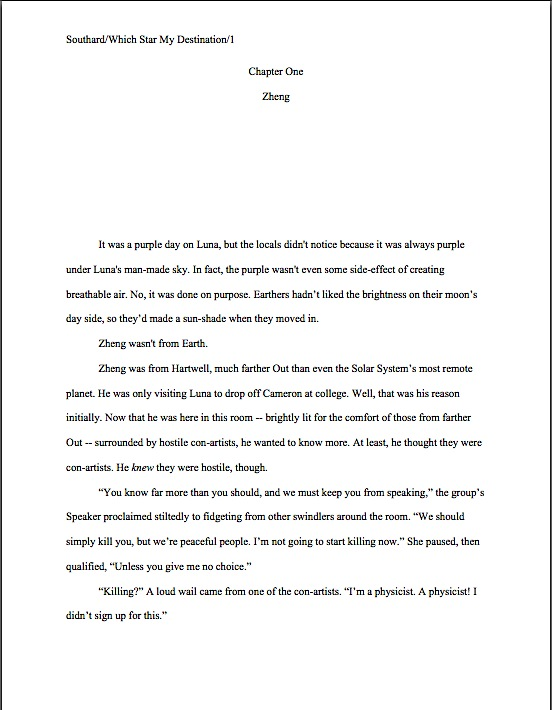
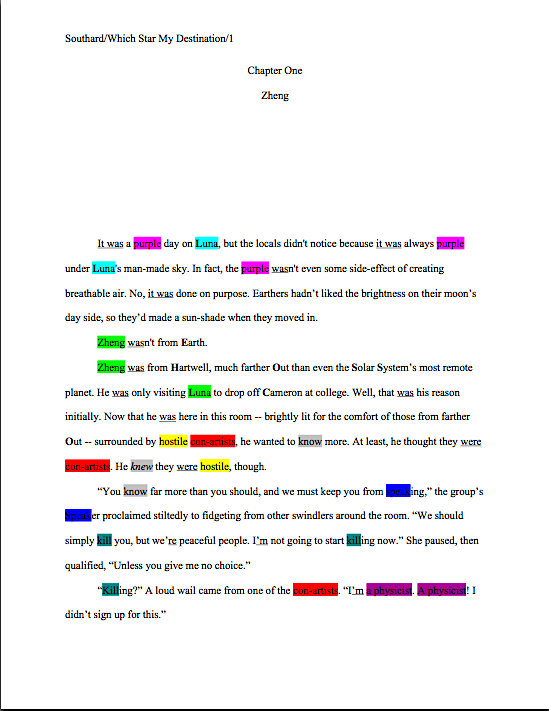
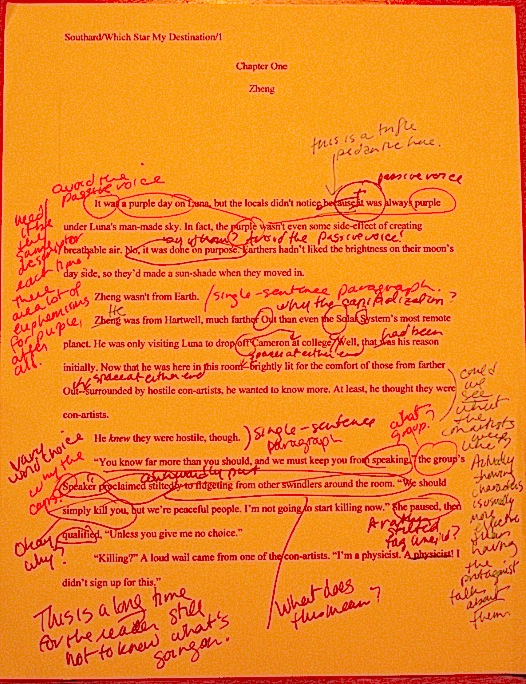
 YA has its own distinctive conventions, particularly with respect to voice and subject matter. If it is not apparent from the first paragraph of page 1 that a manuscript is YA, even the best-written YA manuscript runs the risk of rejection on that ground alone.
YA has its own distinctive conventions, particularly with respect to voice and subject matter. If it is not apparent from the first paragraph of page 1 that a manuscript is YA, even the best-written YA manuscript runs the risk of rejection on that ground alone.

